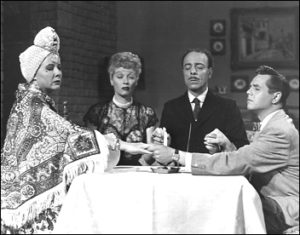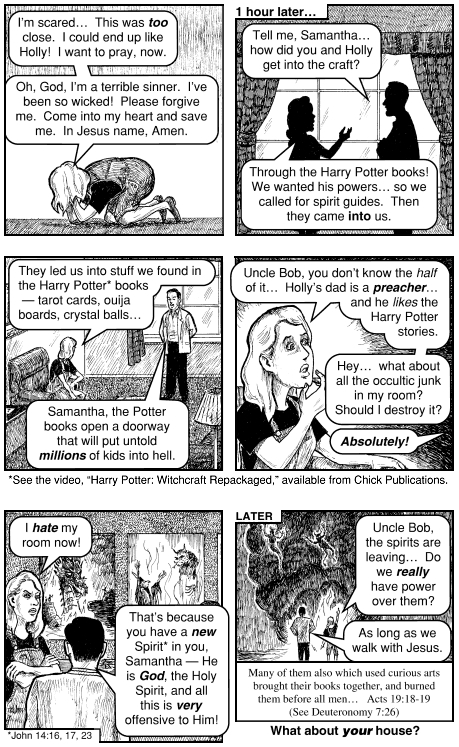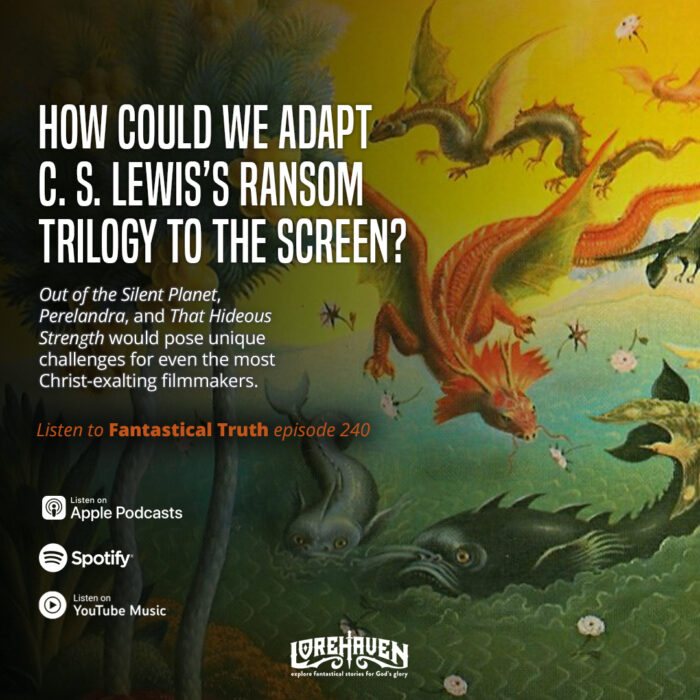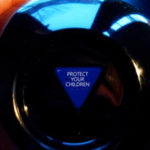Christian White Magic: Q and A, Part 1
Last week’s article about Christian white magic may have put the wand before the wizard.
I ended up exploring the what of Christian white magic, while skipping over the whys.
Of course, that’s what comments sections (at their best) are for—to allow give-and-take, clarity, challenges, and even some debate among Christians and others about such issues.
But how about doubling back here and exploring what Christian white magic actually is?
This may take more than one part. In part 1, I’ll share background about the topic, along with links to related articles and resources. Then in part 2, I will seek to offer some clarifications about the six Christian white magic spells I explored last week.
Q. What is ‘Christian white magic’?
Let’s define “Christian white magic” thinking like so:
- Christian means this worldview and these methods are accepted or practiced by well-meaning and/or biblical Christians. They are often justified with Bible texts as well as Christians’ anecdotes or teachings about how these methods work.
- White means that these ideas meant for “good,” to counteract evil or pain. People believe special actions, objects, or life decisions—or else avoidance of particular actions, objects, or life decisions—will always bring good results. These results can include health, wealth, success, relationships, or extra spiritual benefit, and can prevent pains such as sickness, poverty, singleness, or spiritual struggles.
- Magic means this is not the same as desiring or praying for a miracle from God. This is more similar to the divination methods God warns against in Scripture.
White magic is not an object or “thing.” It comes from a mindset. This mindset comes from our sin: the original Genesis 3 idolatry that we can be like gods and control the universe.1
Q. Why is Christian white magic sinful?
These white-magic promises are imagined by humans. They are not found in God’s word.
They are more like the real-world magic attempts God condemns in Scripture. They remain similar to divination or sorcery, even if false (and/or well-meaning) teachers have dressed up the methods as Christian, or if we truly believe these methods are found in Scripture.
Q. What Scripture passages warn against divination?

One episode of the classic sitcom “I Love Lucy” portrays a divination-seeking séance for laughs.
Deuteronomy 18:9-14 is the key text. Other Bible books that condemn “sorcery” include Galatians 5:19-20 and Revelation 21:8. However, “sorcery” may mean a unique practice involving drugs.2
Previously on SpecFaith I’ve explored Deut. 18 and magic, with application to fantasy:
- Why I Don’t Shut Up About ‘Harry Potter’
- Winners Don’t Do Witchcraft
- Deuteronomy 18 Witchcraft: What It Is and Isn’t
Q. Do you believe a Christian ‘white magician’ is especially evil?
Not at all—at least, no more than usual!
The apostle Paul’s 1 Corinthians list of sins Christians cannot practice3 is similar to his Galatians 5 list, which includes “sorcery” (verse 20). To the Corinthians, Paul says, “… And such were some of you [who did these sins]. But you were washed, you were sanctified, you were justified in the name of the Lord Jesus Christ and by the Spirit of our God.”4
Every Christian struggles with white magic thinking, because we’re all recovering idolaters.
We all need to fight our impulses to make God do things we want, or to control the world. These impulses disguise in many forms, even “angels of light,” such as spiritual practices.

A Jack Chick tract, “The Nervous Witch,” condemns secular dark magic. In response it advocates a form of Christian white magic.
Q. Is Christian white magic really worse than secular magic?
In one sense, no.
Christian “white magicians,” if we are in Christ, are not saved based on our works. We are saved by grace. And the Holy Spirit is notoriously patient in “cleaning out” our false beliefs. We all know cases when He lets people carry false beliefs and true beliefs in the same brain for years. In Heaven, then after the Resurrection, we’re due for many surprises!
By contrast, non-Christians are not saved at all. So their “magic” attempts are worse. These include actual occult activity, as well as today’s trendier “progressivist” magic, through better social changes, sexuality worship, and “counter-curses” against offenders on social media.
But in another sense, yes, Christian white magic is worse.
Because God wants us to know better and to think better of Him—more biblically of Him.
The apostle Paul chastises the Corinthian church for tolerating sexual immorality. Paul said it was worse for Christians to tolerate it among them than to tolerate it in the world. After all, we’re meant to be active in the world where the pagans live. And pagans are expected to do pagan things. But Christians are not. So Paul raises the standard: “For what have I to do with judging outsiders? Is it not those inside the church whom you are to judge? God judges those outside. ‘Purge the evil person from among you.’”5
We can challenge Christians to reject sin in ways we cannot challenge pagans, who have not even repented and received grace through Christ. We can also do this firmly, yet lovingly.
With this in mind, tomorrow I’ll explore some responses I’ve received to the Six Christian White Magic Spells that Are Worse than Fantasy Magic article.
- This also makes the “what about fantasy magic?” questions easier and more complex. In short, if the story-magic (whatever kind it is) tempts you to indulge in idolatry, then do not read or watch it. But what if the story-magic does not bring these temptations, or awakens other God-glorifying impulses in you such as wonder, creativity, or even worship of Him? ↩
- The term sorcery describes people’s idolatrous attempts to relay wisdom from the gods by means of various pagan practices. In Gal. 5:20 the Greek word is pharmacia (it’s behind the English word pharmacy) and refers to sorcerous drug use, likely a reference to the oracle at the Greek city of Delphi. There pagan priestesses would inhale the fumes from burning hallucinogenic plants or perhaps gas. Once intoxicated, they would babble divine mysteries that required “interpretation” from someone sober in the next room, of course for a price. (“The Oracle of Delphi—Was She Really Stoned?”, Jelle Zeilinga de Boer and John R. Hale at BiblicalArchaeology.org. I am indebted to Phillip Way for drawing this comparison regarding “sorcery.”) Rev. 21:8 could also allude to this practice or to any other divination method in the New Testament world that ignored the final Prophet, Jesus Christ, God’s revelation to his people, the Word (John 1). ↩
- 1 Corinthians 6:9-11 ↩
- 1 Corinthians 6:11. ↩
- 1 Corinthians 5:12-13. ↩








































